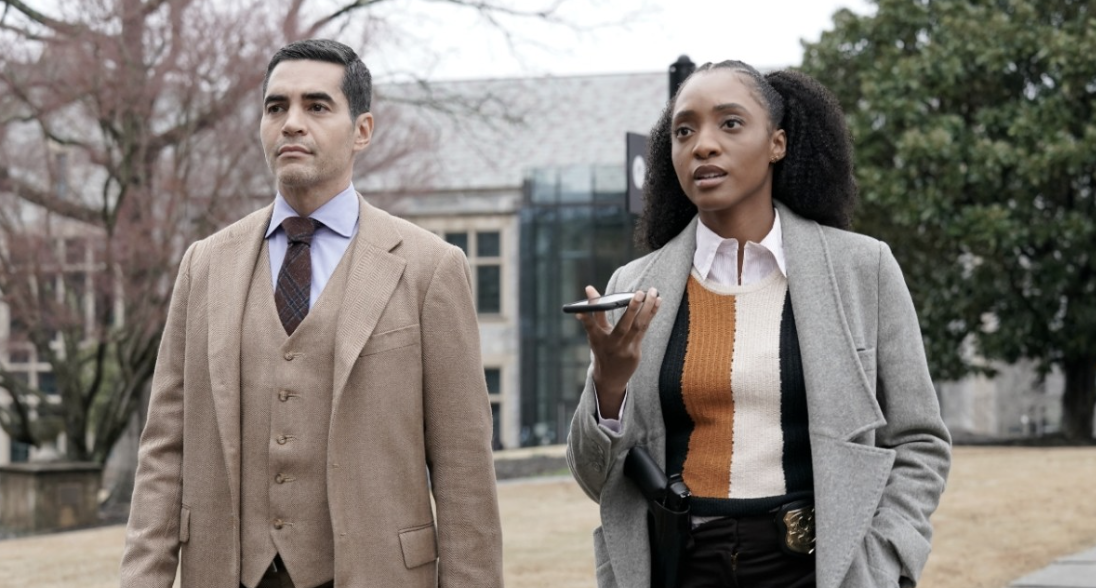
In the realm of contemporary crime fiction, Special Agent Will Trent of the Georgia Bureau of Investigation has carved a distinctive niche. Created by the masterful storyteller Karin Slaughter, Trent is not just another detective; he’s a complex, deeply human character whose sharp intellect and unconventional methods consistently lead to the unraveling of the most intricate and disturbing cases. While anticipation builds for a potential on-screen adaptation, the literary world is already replete with examples of Trent’s exceptional crime-solving abilities. This article delves into five hypothetical yet quintessential moments, offering a deeper analysis of the “cold tricks” and “gripping drama” that define his investigative genius.
-
The Silent Witness Speaks Volumes: Unearthing Truth in the Unseen (Inspired by the Tangled Web of Triptych)
Consider a seemingly straightforward kidnapping case that quickly spirals into a labyrinth of secrets and hidden agendas, much like the intricate plot of Triptych. While conventional investigators might focus on witness testimonies and forensic evidence, Will Trent possesses an almost preternatural ability to glean crucial information from the environment itself. Imagine him meticulously examining the victim’s residence, his gaze lingering on details others would dismiss as insignificant. A subtly disturbed rug, a faint, almost imperceptible scratch on a seemingly solid wall, the unusual stillness of a particular room – these seemingly minor anomalies trigger a cascade of deductions in Trent’s mind. He understands that spaces often hold unspoken narratives, and his relentless pursuit of these silent witnesses leads him to uncover a cleverly concealed room, a secret space that not only reveals the victim’s true fate but also unlocks a Pandora’s Box of long-buried family secrets and a shocking lineage of deception. Trent’s brilliance lies in his profound understanding that the most damning evidence is often not spoken or readily visible, but subtly imprinted on the fabric of the crime scene itself.
-
Decoding the Devil’s Tongue: The Subtle Art of Linguistic Deception (Drawing from the Psychological Depth of Fractured)
In the aftermath of a series of seemingly disparate and brutal murders, reminiscent of the unsettling atmosphere of Fractured, traditional investigative methods might struggle to find a unifying thread. However, Will Trent approaches the puzzle from an entirely unique angle: language. He meticulously analyzes the victims’ final words, any hastily written notes they might have left behind, and even the recorded interviews of potential suspects. His deep understanding of regional dialects, subtle shifts in speech patterns under duress, and even unconscious grammatical choices becomes a powerful tool. Imagine him identifying a recurring linguistic quirk, a specific turn of phrase or a particular pronunciation, that initially seems insignificant. Yet, Trent recognizes this as a linguistic fingerprint, a subtle marker that ultimately connects the seemingly unrelated crimes to a single, cunning perpetrator whose true identity and motivations are cleverly concealed behind a carefully constructed facade of normalcy. His ability to decipher the nuances of language transforms seemingly innocuous words into irrefutable evidence.
-
The Unspoken Confession: Mastering the Art of Non-Verbal Interrogation (Evoking the Intense Interrogations of Genesis)
Picture the intense pressure cooker of an interrogation room, a setting often explored with chilling realism in novels like Genesis. A suspect, hardened and practiced in deception, presents a meticulously crafted alibi, their words flowing smoothly and convincingly. But Will Trent operates on a different plane of observation. He possesses an almost uncanny ability to read the subtle language of the body – the fleeting micro-expressions that betray underlying anxiety, the involuntary twitch of an eyelid, the almost imperceptible shift in posture, the subtle clenching of a hand. These minute physical cues, often contradicting the suspect’s carefully rehearsed narrative, become the irrefutable cracks in their composure. Trent’s mastery lies in his patient and unwavering focus on these non-verbal signals, allowing him to see through the lies and ultimately extract the truth hidden beneath layers of deceit. His interrogations are not just about questioning; they are a meticulous study of human behavior under pressure.
-
Beyond the Tangible: Forging Unexpected Connections in the Labyrinth of Lives (Reflecting the Intertwined Narratives of Broken)
In the complex and often heartbreaking cases that populate Slaughter’s novels, particularly those with interwoven narratives like Broken, the connections between victims and perpetrators can be frustratingly elusive. While conventional methods might focus on obvious relationships and direct links, Will Trent excels at identifying the seemingly insignificant threads that bind disparate lives. Imagine him noticing a shared, obscure hobby amongst the victims, a fleeting mention of a past connection years ago, a recurring motif in their personal belongings that appears inconsequential at first glance. Trent’s brilliance lies in his ability to think laterally, to see patterns and connections that others overlook. He meticulously pieces together these seemingly unrelated fragments, forging unexpected links that ultimately reveal the hidden architecture of the crime, exposing the killer’s motive and identity in a shocking and often deeply unsettling revelation.
-
The Enemy Within the Citadel: Unmasking Betrayal in the Ranks (Inspired by the Undercurrents of Suspicion in Various Novels)
The tension escalates to a razor’s edge when the threat comes not from the outside, but from within the very institution sworn to uphold justice, a recurring theme that adds layers of complexity to many of Slaughter’s works. Imagine Trent facing a case where the investigation is deliberately being steered in the wrong direction, crucial evidence is disappearing, or key witnesses are being silenced. His unwavering sense of integrity and his sharp, almost intuitive understanding of human nature lead him to suspect a mole within law enforcement itself. Through meticulous cross-referencing of information, painstaking observation of his colleagues’ behavior, and a relentless pursuit of inconsistencies and hidden agendas, Trent embarks on a dangerous path to uncover the devastating truth of betrayal. This not only solves the immediate crime but also forces him to confront the chilling reality that the greatest danger can sometimes lurk within the very system he has dedicated his life to, adding a layer of intense personal and professional stakes to the resolution.

Now, Let’s Hear From You: Which of Will Trent’s (real or imagined) crime-solving feats has left the most indelible mark on your reading experience? What specific moments showcased his unique blend of cold logic and empathetic understanding in a way that truly captivated you? Share your favorite instances, the details that made them so compelling, and your insights into what makes Will Trent such a compelling and effective crime solver in the comments below. Let’s delve deeper into the brilliance of this unforgettable character!
